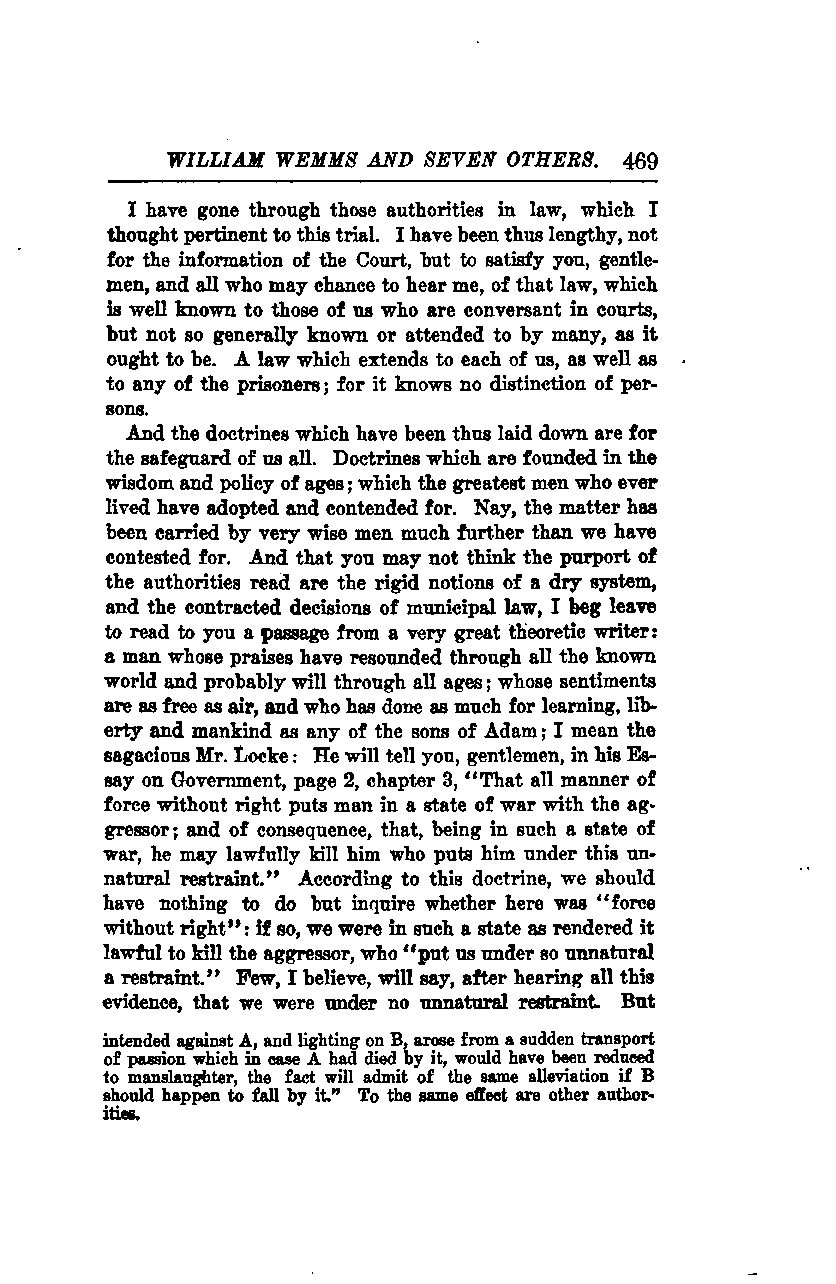
Here is the translated text as follows:
WILLIAM WEMMS AND SEVEN OTHERS. 469
I have gone through those authorities in law which I thought pertinent to this trial. I have been thus lengthy, not for the information of the Court, but to satisfy you, gentlemen, and all who may chance to hear me, of that law which is well known to those of us who are conversant in courts, but not so generally known or attended to by many, as it ought to be. A law which extends to each of us, as well as to any of the prisoners; for it knows no distinction of persons.
The doctrines which have been thus laid down are for the safeguard of us all. Doctrines which are founded in the wisdom and policy of ages; which the greatest men who ever lived have adopted and contended for. Nay, the matter has been carried by very wise men much further than we have contested for. And that you may not think the purport of the authorities read are the rigid notions of a dry system, and the contracted decisions of municipal law, I beg leave to read to you a passage from a very great theoretic writer: a man whose praises have resounded through all the known world and probably will through all ages; whose sentiments are as free as air, and who has done as much for learning, liberty, and mankind as any of the sons of Adam; I mean the sagacious Mr. Locke. He will tell you, gentlemen, in his Essay on Government, page 2, chapter 3, "That all manner of force without right puts man in a state of war with the aggressor; and of consequence, that, being in such a state of war, he may lawfully kill him who puts him under this unnatural restraint." According to this doctrine, we should have nothing to do but inquire whether here was "force without right": if so, we were in such a state as rendered it lawful to kill the aggressor, who "put us under so unnatural a restraint." Few, I believe, will say, after hearing all this evidence, that we were under no unnatural restraint.
But the intended action against A, and lighting on B, arose from a sudden transport of passion which, in case A had died by it, would have been reduced to manslaughter, the fact will admit of the same alleviation if B should happen to fall by it. To the same effect are other authorities.
---